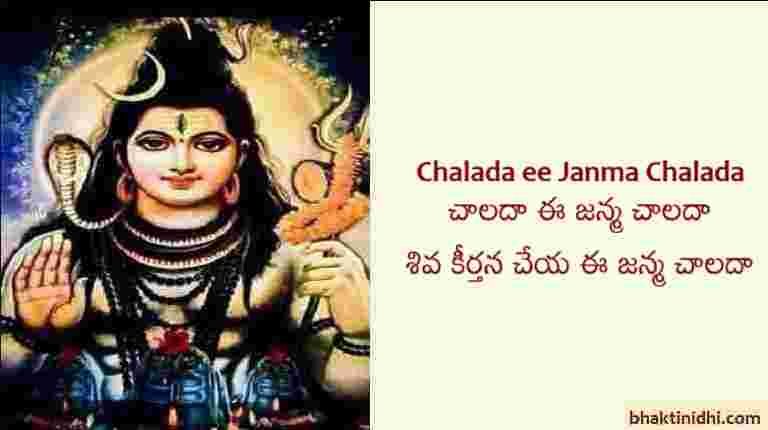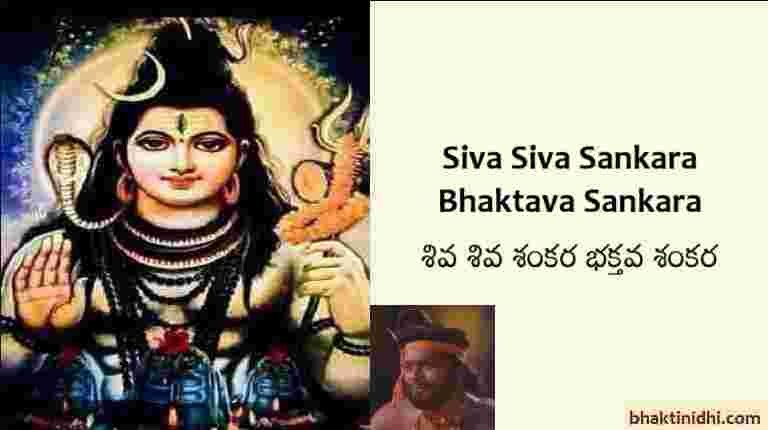Vedasara Shiva Stotram was composed by Sri Adi Shankaracharya in praise of Lord Shiva. Get Sri Vedasara Shiva Stotram in English Lyrics Pdf with meaning here and chant it with devotion for the grace of Lord Shiva.
Vedasara Shiva Stotram in English – vēdasāraśiva stōtram
paśūnāṃ patiṃ pāpanāśaṃ pareśaṃ
gajendrasya kṛttiṃ vasānaṃ vareṇyam |
jaṭājūṭamadhye sphuradgāṅgavāriṃ
mahādevamekaṃ smarāmi smarārim || 1 ||
Meaning: (I meditate on him) who is the lord of the living beings (Pashus), who destroys our sins, and who is the transcendental god,
who wears the hide of the best of elephants, and who is himself the best,
From whose matted hairs is spurting out the holy waters of the great river ganga,
on that mahadeva (with one-pointed mind) I meditate, the one who is the enemy of smara (Kamadeva, representing desires).
maheśaṃ sureśaṃ surārārtināśaṃ
vibhuṃ viśvanāthaṃ vibhūtyaṅgabhūṣam |
virūpākṣamindvarka vahnitrinetraṃ
sadānandamīḍe prabhuṃ pañcavaktram || 2 ||
Meaning: (I meditate on him) who is the great lord (Mahesha), who is the lord of the devas (suresha) and who removes the afflictions of the devas,
who is the all-pervading lord of the universe (Vishwanatha) and whose body is adorned with sacred ashes (Vibhuti),
whose unique eyes consists of the triad of the moon (Indu), sun (Arka) and fire (Vahni),
I extol that ever-blissful lord who has five faces (Pancha Vaktra).
girīśaṃ gaṇeśaṃ gale nīlavarṇaṃ
gavendrādhirūḍhaṃ gaṇātītarūpam |
bhavaṃ bhāsvaraṃ bhasmanā bhūṣitāṅgaṃ
bhavānīkalatraṃ bhaje pañcavaktram|| 3 ||
Meaning: (I meditate on him) who is the lord of the (Kailasha) mountain (Girisha), who is the lord of the celestial attendants (Ganesha) and in whose throat is blue-colored (due to poison),
who is mounted on the king of bulls (Nandi), and whose forms are innumerable,
who is existence itself shining as the underlying consciousness (prakasha) (internally), and whose body is adorned with sacred ashes (externally),
who is the consort of devi Bhavani; I worship that lord with five faces (Pancha Vaktra).
śivākānta śambho śaśāṅkārdhamaule
maheśāna śūlin jaṭājūṭadhārin |
tvameko jagadvyāpako viśvarūpa
prasīda prasīda prabho pūrṇarūpa || 4 ||
Meaning: O Shambhu (giver of happiness), the beloved of Shiva (devi Parvati); O the one with the half-moon on his head,
O the great master (Maheshana) holding the trident (in his hand) and bearing the matted hairs (on his head),
you are the one who pervades the entire universe; and whose form is the universe itself (Vishwarupa),
Be pleased with us, be pleased with us, O lord, whose form is the fullness (of consciousness); (be pleased with us and make us merge in your fullness).
parātmānamekaṃ jagadvījamādyaṃ
nirīhaṃ nirākāramoṅkāravedyam |
yato jāyate pālyate yena viśvaṃ
tamīśaṃ bhaje līyate yatra viśvam || 5 ||
Meaning: (I meditate on him) who is the one transcendental consciousness which is the primeval seed of the universe,
who is without any desire (attaching him to anything) (Niriha), who is without any form (binding him to anything) (Nirakara), and who is known by meditating on the Omkara,
From whom is created the universe, by whom is sustained the universe,
I worship that lord, in whom finally the whole universe merges.
na bhūmirna cāpo na vahnirna vāyur
na cākāśa āste na tandrā na nidrā |
na grīṣmo na śīto na deśo na veṣo
na yasyāsti mūrtistrimūrti tamīḍe || 6 ||
Meaning: Neither by earth (Bhumi), nor by water (apah), neither by fire (Vahni), nor by wind (Vayu), …
neither by space is his presence limited; similarly neither by lassitude (Tandra), nor by sleep (nidra) (can he be realized),
neither by summer (Grishma), nor by winter (Shita) (is he constrained); similarly neither by place (Desha), nor by attire (Vesha) (can he be restrained),
and nor of whom there is an (exclusive) image (Murti); I extol that trimurti (the cosmic presence behind creation, sustenance and dissolution).
then who is he? the next verse tells about that.
ajaṃ śāśvataṃ kāraṇaṃ kāraṇānāṃ
śivaṃ kevalaṃ bhāsakaṃ bhāsakānām |
turīyaṃ tamaḥpāramādyantahīnaṃ
prapadye paraṃ pāvanaṃ dvaitahīnam || 7 ||
Meaning: He is without birth (i.e. he did not have a beginning) (Aja), he is eternal (Shasvata) and he is the primal cause behind all the causes (Karana Karananam),
he is auspicious (Shiva), he is one and only (Kevalam), he is the (internal) manifesting light (of consciousness) (Bhasaka) behind all the (external) manifesting lights (of appearances),
he is Turiya (super-conscious state), beyond all ignorance, and without any beginning and end,
I take refuge in that transcendental purity, who is beyond all dualities.
namaste namaste vibho viśvamūrte
namaste namaste cidānandamūrte |
namaste namaste tapoyogagamya
namaste namaste śrutijñānagamya || 8 ||
Meaning: Salutations to you, salutations to you, O the all-pervading one (Vibhu), whose form is the whole universe (Vishwamurti),
Salutations to you, salutations to you, O the one who is the embodiment of the bliss of consciousness (Cidananda),
Salutations to you, salutations to you, who is attained by Tapas (penance) and Yoga,
Salutations to you, salutations to you, who is attained by the Knowledge of the shrutis (vedas).
prabho śūlapāṇe vibho viśvanātha
mahādeva śambho maheśa trinetra |
śivākānta śānta smarāre purāre
tvadanyo vareṇyo na mānyo na gaṇyaḥ || 9 ||
Meaning: O lord (Prabhu), O the one with trident in his hand (Shulapani), O the all-pervading one (Vibhu), O the lord of the universe (Vishwanatha),
O the great god (mahadeva), O the one who causes happiness to all (shambhu), O the great lord (Mahesha), the one with three eyes (Trinetra),
the beloved of devi Parvati (Shiva Kanta), an embodiment of peace (Shanta), the one who was an enemy of Kama (smarari) and tripura (Purari),
O lord, apart from you there is no Other (for me) to be wished for, venerated and considered (for worship).
śambho maheśa karuṇāmaya śūlapāṇe
gaurīpate paśupate paśupāśanāśin |
kāśīpate karuṇayā jagadetadekas _
tvaṃ haṃsi pāsi vidadhāsi maheśvaro’si || 10 ||
Meaning: O Shambhu, O Mahesha, O the compassionate one (Karunamaya) with trident in hand (Shulapani),
O the consort of Gauri (Gauripati), the lord of all beings (Pashupati) who severe their bondages (Pashupasha nashi),
O the lord of Kashi (Kashipati); By your compassion (and will), this universe, you alone …
destroy, protect and create, O you are the maheshwara (the great god).
tvatto jagadbhavati deva bhava smarāre
tvayyeva tiṣṭhati jaganmṛḍa viśvanātha |
tvayyeva gacchati layaṃ jagadetadīśa
liṅgātmakaṃ hara carācaraviśvarūpin || 11 ||
Meaning: From you the whole universe comes into being, O deva; existence (itself comes into being), O smarari,
(and then) in you abides the whole universe (after coming into being), O gracious Vishwanatha,
(finally) in you goes this whole universe during dissolution (laya), O lord of this universe,
you who are of the nature of linga (lingatmaka), you who take away afflictions (hara); you who are of the form of the world with all its moving and non-moving beings (Caracara Vishwarupin); I ever meditate on you.







Very nice transliteration… Thank you